Introduction
The kit offers the unique feature to isolate total RNA including small RNA and DNA from serum and plasma without the need to resort to the cumbersome phenol/chloroform extraction or a time consuming proteinase digest. RNA purified using the kit is ready for applications such as RT-PCR, Northern blotting, poly A+ RNA (mRNA) purification, nuclease protection, and in vitro translation.
Details
Specifications
| Features | Specifications |
| Main Functions | Isolation miRNA from 0.3-0.5ml serum or plasma using magnetic particles |
| Applications | RT-PCR, cDNA synthesis, second generation sequencing |
| Purification method | Polydisperse magnetic beads |
| Purification technology | Magnetic beads technology |
| Process method | Manual or automatic |
| Adaptive instrument | Nucleic acid extractor, pipetting workstation |
| Sample type | Serum, plasma, acellular samples |
| Sample amount | 300μl |
Principle
This product is based on the purification method of high binding magnetic particles. The sample material is denatured in Lysis Buffer. The protein is then precipitated by Protein Precipitation Solution and pelleted by centrifugation. After adding magnetic particles and binding solution, RNA will be adsorbed on the surface of magnetic particles, and impurities such as proteins will be removed without adsorption.The adsorbed particles were washed with washing solution to remove proteins and impurities, washed with ethanol to remove salts, and finally RNA was eluted by Elution Buffer.
Advantages
- Safe – no phenol chloroform extraction and no use of Trizol reagent
- Fast – several samples can be extracted in 60 minutes by column method
Kit Contents
| Contents | R662801 | R662802 | R662803 |
| Purification Times | 48 Preps | 96 Preps | 5 x 96 Preps |
| MagPure Particles N | 1.7 ml | 3.5 ml | 17 ml |
| Buffer CFL | 6 ml | 12 ml | 60 ml |
| Buffer CPL | 1.8 ml | 3.5 ml | 20 ml |
| Buffer MGW1* | 30 ml | 60 ml | 250 ml |
| Buffer MW2* | 12 ml | 25 ml | 100 ml |
| RNase Free Water | 10 ml | 20 ml | 60 ml |
Storage and Stability
MagPure Particle N should be stored at 2–8°C upon arrival. However, short-term storage (up to 8 weeks) at room temperature (15–25°C) does not affect their performance. The remaining kit components can be stored at room temperature (15–25°C) and are stable for at least 18 months under these conditions.

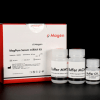
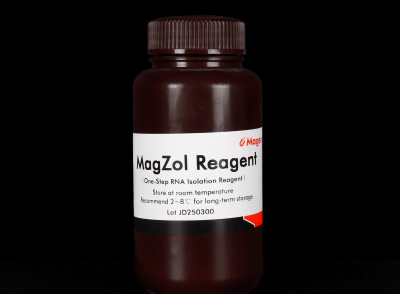
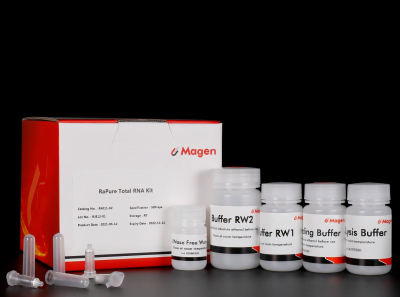
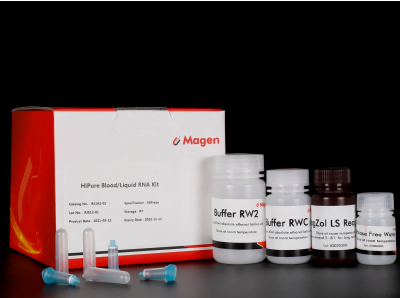
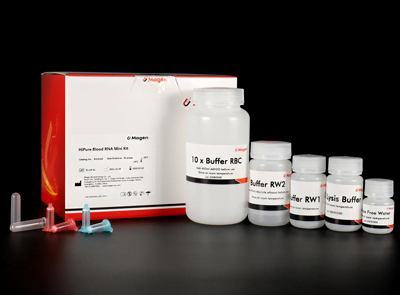
Reviews
There are no reviews yet.